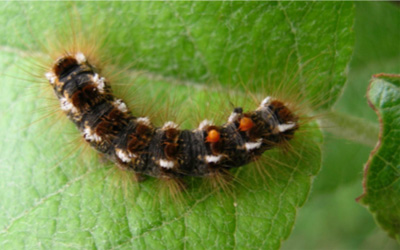Mosquitoes and Travel
Overseas travelers should learn about current risks and how to prevent mosquito bites during their trip. Mosquitoes spread viruses and parasites not common or present in the continental United States, such as:
Overseas travelers should learn about current risks and how to prevent mosquito bites during their trip. Mosquitoes spread viruses and parasites not common or present in the continental United States, such as:
About 45 different species of mosquitoes live in Maine. About half of these mosquitoes can carry the germs that cause illness in humans, but not all bite people. Mosquitoes in Maine can carry viruses that can cause several illnesses. These include:

Varicella (Chickenpox) is a highly contagious disease caused by the varicella-zoster virus. It mainely spreads from unvaccinated people with chickenpox to other people who have never had the virus before. It causes an itchy, blister-like rash in most people.
Varicella-zoster virus also causes shingles. After people recover from chickenpox, the virus stays dormant in the body. This virus can reactivate later in life and cause shingles.
The best way to prevent chickenpox is to get the chickenpox vaccine.
Smallpox is an acute, contagious, and sometimes fatal disease caused by the variola virus, and marked by fever and a distinctive progressive skin rash. Prolonged face-to-face contact is required to spread smallpox from one person to another. Smallpox also can be spread through direct contact with infected bodily fluids or contaminated objects such as bedding or clothing.
Rubella (German Measles) is an infection caused by the rubella virus. It is spread by mucus or droplets from the nose or throat of an infected person, usually when a person coughs or sneezes. Children with rubella usually break out in a rash, which starts on the face and moves down the body. Older children and adults usually suffer first from a fever, swollen glands, and upper respiratory infection before they develop a rash. Rubella infection in the first trimester of pregnancy can lead to fetal death, premature delivery and serious birth defects.
Hand, foot, and mouth disease (HFMD) is caused by a group of viruses, called enteroviruses. HFMD occurs mainly in infants and children under 5 years old, but it can also occur in adults
Maine CDC works to monitor and prevent infectious diseases in Maine. These diseases are caused by certain viruses, bacteria, fungi, or parasites. Viral infections that can cause rashes include chickenpox, shingles, rubella, and more.
Respiratory illnesses affect your lungs and airways, making it hard to breathe. There are many viruses and bacteria that cause respiratory illness.
Legionella bacteria are common in the natural environment. There are over 60 different species of Legionella, but the species Legionella pneumophila is the one overwhelmingly found in association with disease cases and outbreaks.